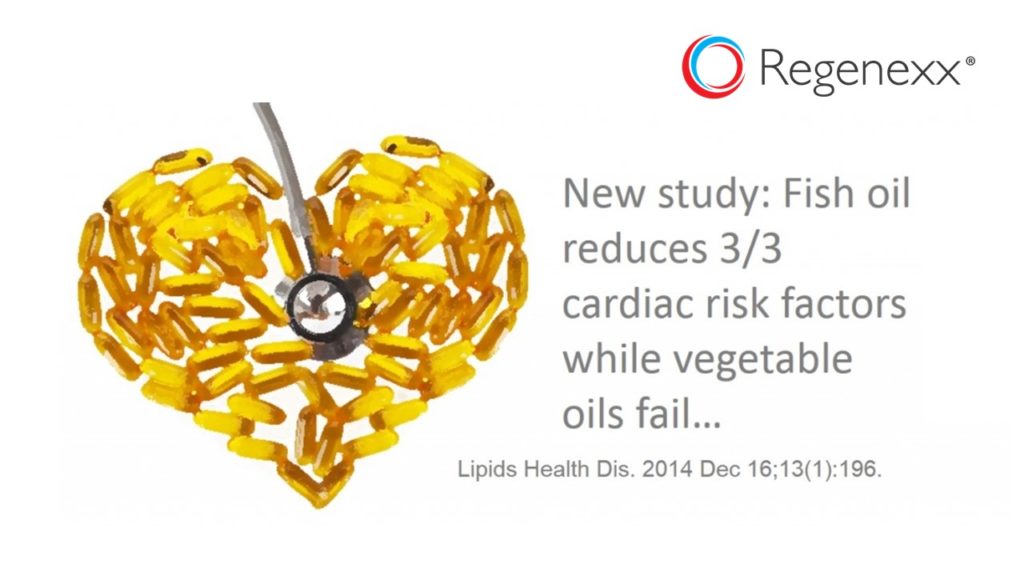Fish Oil or Cholesterol Drugs for Heart Health?
I’ve never been a big fan of statin drugs, as anyone who reads this blog can tell. This is in part due to the fact that they seem to hurt stem cells in our extensive culture experience and in part due to seminal works like The Cholesterol Myth. Having said that, I am a fan of nutitional supplements to help reduce cardiac disease risk and the research continues to tag along. For example a new study was just published that continues to show the subtle power of fish oil.
If you haven’t read the book, The Cholesterol Myth, it’s a fantastic read. It takes you on a tour through the junk science that makes up the Madison avenue marketing message about high cholesterol. The bottom line is that the science supporting that many Americans will derive any benefit from hyper-expensive and side effect laden cholesterol lowering statin drugs is poor at best. With a family history of heart disease, reading this book left me with one key question-what can I do to try to lower that risk besides keeping my weight down and exercising?
Before I get into this, the number touted by Madison avenue and pharma companies, LDL or “bad” cholesterol, has been found through extensive research to be pretty unimportant in most patients. The fact that heart scientists widely agree on this issue and that the advertising around this number continues is beyond bizarre. There is however an important number in the average blood test for cholesterol, which is your good cholesterol or HDL. In addition, most scientists in this area now agree that since diabetes is the single biggest risk factor for heart disease, that measuring blood sugar control is pretty darn important for heart risk. The blood test number that most easily quantifies this is called HBA1C.
The new study explores what various oil supplements will do for your blood measures of cardiac risk. The scientists took about sixty patients and placed them on either corn oil, botanical oils (Borage and Echium oils enriched with enriched in alpha-linolenic, gamma-linolenic, and stearidonic acids), or fish oil (enriched with EPA and DHA) for 8 weeks and then measured cardiac blood tests. The corn oil did nothing (so much for that heart healthy sticker on the bottle), but the botanical and fish oils did have impacts. Supplementing with the botanical oils significantly lowered total and LDL cholesterol levels. While this might be impressive to Madison avenue as discussed above, lowering these traditional total and bad cholesterol numbers are no longer thought of as being a big help. However, the fish oil reduced serum triglycerides, hemoglobin A1c (HBA1C) and increased HDL-cholesterol! Now we’re talking! All three of these numbers are still considered risk factors for heart disease.
The upshot? You gotta love fish oil! This little supplement continues to tick right along with more and more solid science to back up fish oil for heart risk effectiveness every year. IMHO you should ditch the toxic statin pills and go get yourself a high quality bottle of fish oil!

If you have questions or comments about this blog post, please email us at [email protected]
NOTE: This blog post provides general information to help the reader better understand regenerative medicine, musculoskeletal health, and related subjects. All content provided in this blog, website, or any linked materials, including text, graphics, images, patient profiles, outcomes, and information, are not intended and should not be considered or used as a substitute for medical advice, diagnosis, or treatment. Please always consult with a professional and certified healthcare provider to discuss if a treatment is right for you.

